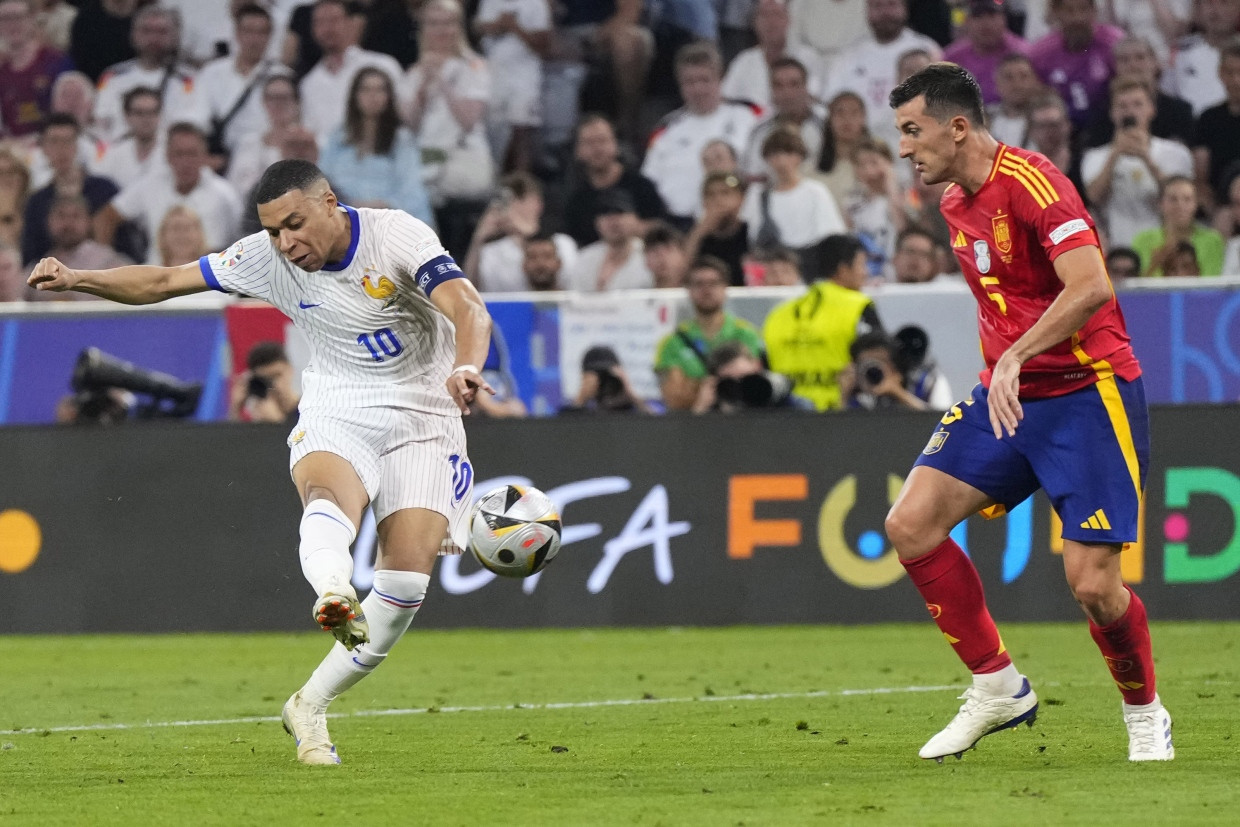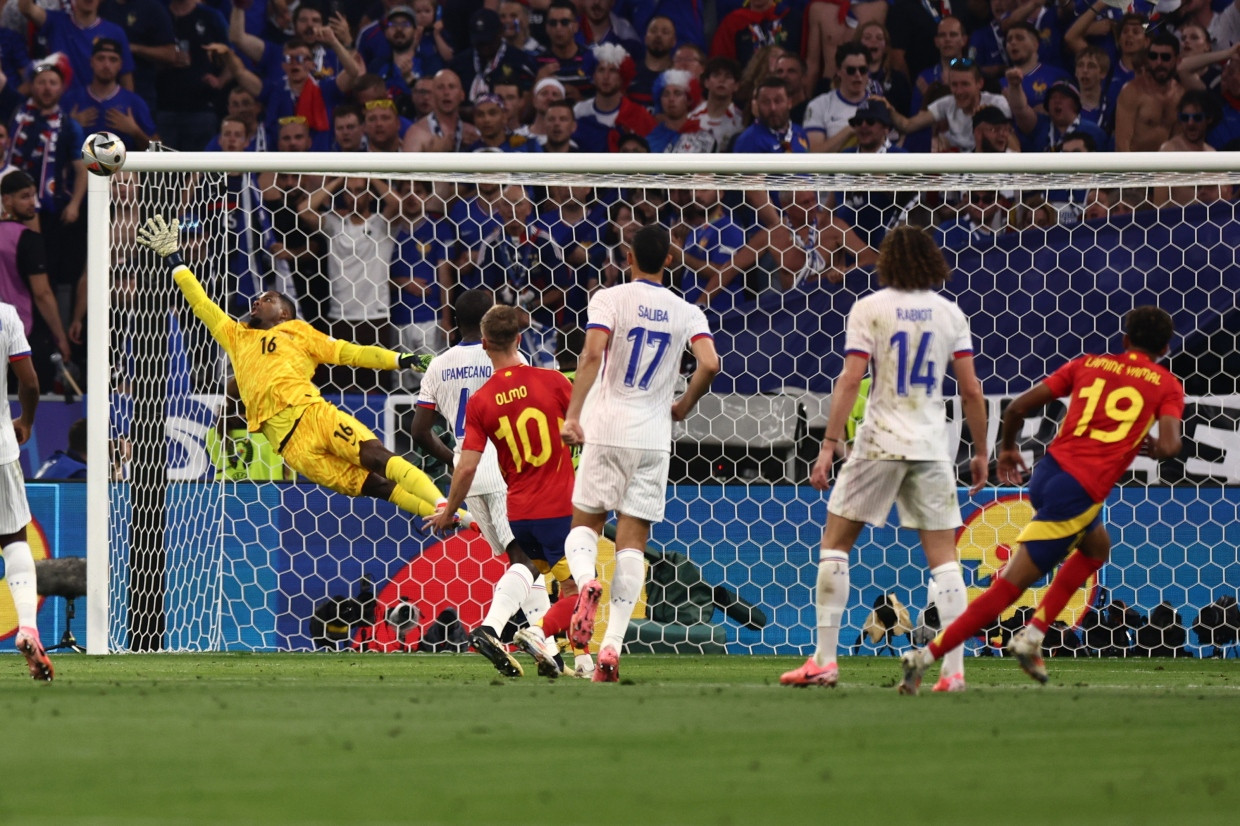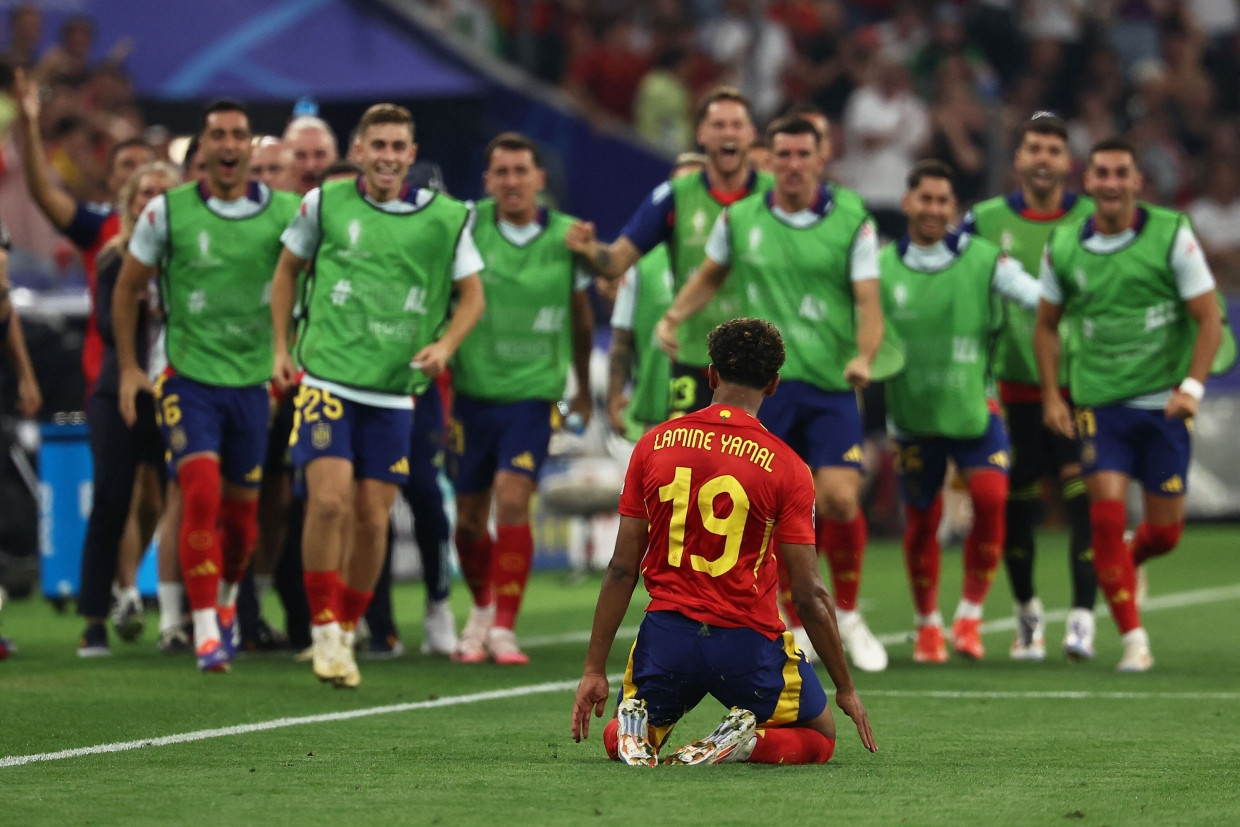Der Puls des Publikums steigt. Und so schnell wie in dieser siebten Spielminute steigt er in diesem Stadion sonst sehr selten. Es ist Dienstagabend in der Fußballarena in München, das erste Halbfinalspiel der Europameisterschaft, Frankreich gegen Spanien. Auf der einen Seite steht, in den weißen Trikots, die Mannschaft mit den wenigsten Gegentoren (1). Auf der anderen Seite, in den roten Trikots, die Mannschaft mit den meisten Toren (10).
Es geht in diesem Duell nämlich nicht nur um das Spielrecht fürs Finale, sondern auch um die Frage, was gerade der führende Spielstil des europäischen Fußballs ist: Das athletisch-dynamische Spiel der Franzosen oder das Pass- und Positionsspiel der Spanier. Und es geht um eine fast schon fußballphilosophische Frage: Was ist der Sinn des Spiels? Für die Franzosen und ihren Trainer Didier Deschamps kommt es alleine darauf an, dass sie gewinnen. Für die Spanier und ihren Trainer Luis de la Fuente kommt es auch darauf an, wie sie gewinnen.
In der siebten Minute steigt der Puls des Publikums, weil plötzlich der Spieler mit dem weißen Trikot in die Spielhälfte der Spanier sprintet, der unter den Erstaunlichen dieses Sports der Erstaunlichste ist. Man spürt seine Wirkung auf die Menschen schon daran, dass sie Ah! und Oh! schreien, obwohl in diesem Moment offensichtlich ist, dass selbst er, der Supersprinter, den Ball nie und nimmer erwischen wird. So ist das mit Kylian Mbappé, dem wohl spektakulärsten Spieler Welt, der an diesem Abend das erste Mal seit seinem Nasenbeinbruch ohne Maske auftritt. Er ist fürs Erste das Ende der Evolution.
In der siebten Minute erwischt er den Ball nicht mehr, in der neunten schon. Er stürmt mit ihm in den Strafraum und flankt ihn so präzise in den Fünfmeterraum, dass sein Mitspieler Randal Kolo Muani ihn nur noch mit dem Kopf ins Tor drücken muss. 1:0 für Frankreich, den Weltmeister von 2018, den Weltmeisterschaftszweiten von 2022. 1:0 für das athletisch-dynamische Spiel.

But on this evening, the Spaniards, who dominated the game between 2008 and 2012, who became European champions and world champions and European champions again, hit back quickly. They demonstrated that they had added new elements to their passing and positioning game. They won 2:1. And they showed what was already apparent in their victory against Germany: that they are state of the art. “There is still one step missing. It is unbelievable. We deserve to be in the final,” said Dani Olmo later.
It was clear in the stadium in Munich that the Spanish have become more similar to the French in terms of style. They now attack with players who can dominate not only with their heads but also with their bodies. Like the wingers Nico Williams and Lamine Yamal, aged 21 and 16 respectively. In the 21st minute, Yamal does something that the Spanish don't do very often: he shoots from more than 20 metres. Inside post, goal. Yamal thus becomes the youngest goalscorer in the history of the European Championships.

Then, in the 25th minute, his teammates score again – this time in a more Spanish style. They pass around the box until full-back Jesus Navas crosses the ball into the middle, where it finds Olmo. The midfielder lifts the ball so skilfully that even Aurélien Tchouaméni, Real Madrid's expert, is outplayed. Then Olmo shoots so hard that even the sliding full-back Jules Koundé cannot prevent it.

In this match, Didier Deschamps initially fielded his most athletic eleven, replacing playmaker Antoine Griezmann, his most Spanish player, with the speedy Ousmane Dembélé. But he was unable to unsettle the Spanish because they had a player who set the rhythm of the game: Rodri, the Manchester City midfielder, who can be recognised by the fact that his shirt is tucked in. He is the pacemaker of their game. And in him you can also see the Spanish evolution: he knows how to use his body, with the ball, but also against the ball. With Rodri comes control. And after the ninth minute, the Spanish controlled the game.
Nothing changed in the first few minutes of the second half. Then Deschamps made his first attempt at resuscitation. He brought on Griezmann. As they did against Germany, the Spaniards retreated, but they did not give in. The crowd's pulse had now reached a calm level (which is also due to the fact that there were many German fans there, who made themselves known by booing Spanish left-back Marc Cucurella for his handball in the quarter-finals). In the 79th minute, Deschamps made his final attempt at resuscitation: he sent Olivier Giroud, a penalty area striker, onto the field.
But it's not a Girond moment, but a Rodri moment. In the 81st minute, the Spanish could counterattack. On the right, Williams runs alone. And even though Rodri should definitely see him at that moment (if we see him, Rodri sees him too), he decides to play to the left. On the right, Williams is annoyed, but on the left, the Spanish manage to keep the ball for almost a minute. That's control of the game.
This is only lost once more. In the 86th minute, Mbappé shows that he cannot be controlled. He storms into the Spanish penalty area, plays the last defender and shoots – over the goal. Then the pulse drops back to Spanish levels.









